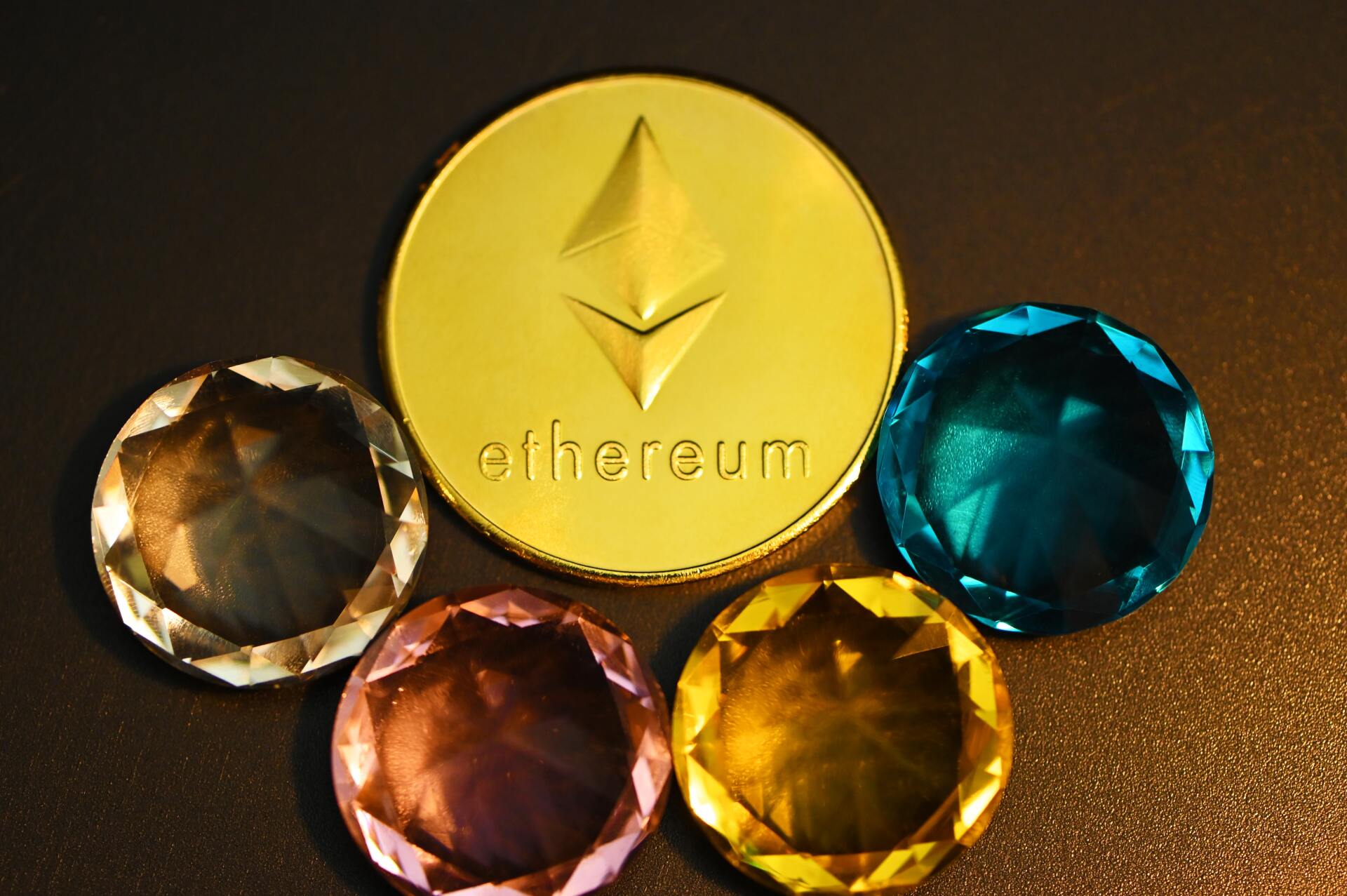Do I Pay Tax on Cryptocurrency?
If you received payment in cryptocurrency, or sold cryptocurrency, there are income tax and GST consequences.

We used to think that crypto currency was the domain of illegal enterprises and people who were foolish with their real money, but corporates, governments and international not-for-profits are giving crypto some legitimacy. Enough so, that fund managers and individual investors are investing in crypto.
Even if you only have a small holding of crypto, you need to be aware of the tax consequences.
What is Crypto Currency?
Crypto currencies are digital money, created using block chain technologies on the internet. The most popular ones are not regulated by government, but some governments are starting to accept crypto currency as legal tender and issue their own crypto currencies. Stablecoins are tokens which mirror fiat currencies like USD or NZD.
While you might argue that they are not worth anything, because they are not backed by a physical asset like gold, bear in mind that most fiat currencies have not been backed by gold for many decades. It is harder to forge crypto transactions, than other financial transactions, because of the block chain security.
While they can be used like money to pay for transactions, IRD (and other tax authorities around the world) considers crypto to be property for tax purposes, like gold or precious gems, rather than currency. This means that a different set of tax rules apply than for foreign currency.
Digital Wallets for the Unbanked
Imagine living in a tiny village, in a third world country. The country’s banking system is corrupt. Or banking is discriminatory against your gender, so you cannot hold a bank account. The World Bank estimates 24% (almost 1 in 4) of adults were unbanked in 2021[i], down from 37% in 2017, due to the rise of mobile money (payment services on mobile phone apps) and cryptocurrency in places like sub-Saharan Africa. The gender gap in account ownership across developing economies has fallen to 6 percentage points from 9 percentage points, where it hovered for many years.
Taxing Crypto Assets
We’ll be using a more generic term, crypto assets, in the rest of the article because the rules are the same, whether talking about crypto currency or other tokens.
Buying and Selling
In most cases, the profits you get from selling cryptocurrencies are taxable, and the losses are deductible. You don’t need to show a pattern of trading every day, to be liable for tax. Merely acquiring crypto assets for a purpose of sale or exchange is enough, even if you don’t plan to sell for a few years, or if you have other purposes like as a hedge against inflation. The trading stock rules apply, so you only treat the cost of what you sold as an expense in that year, using first-in first-out method or weighted average method.
If you switch between crypto assets, like selling Ethereum to buy Bitcoin, then you will need to work out the profit or loss on the sale, even if you don’t convert back to NZD or another foreign currency. Similarly, if you switch between exchanges, even with the same sort of crypto asset, it is still considered a trade, so you calculate profit on the sale when exiting the exchange.
If you move your crypto from a soft wallet (held in a software app in the internet) to a hard wallet (held on a USB stick or portable hard drive) then it is not counted as a trade.
Mining Crypto Assets
Mining is the creation of new blocks to add to the blockchain. Miners can receive rewards for verifying additions to the blockchain digital ledger.
The mining service is subject to GST, but zero rated (0% GST) as the blockchain digital ledger is located outside of NZ. This means that miners can still claim back GST on inputs if they are GST registered, like purchase of hard drives and electricity usage.
You will most likely pay income tax on the profit from selling mined crypto assets, but there is no GST on the sale. The profit on disposal is the difference between the selling price of the crypto asset and the amount that you already declared as mining income. It would be incredibly difficult to argue that the crypto asset mining activity is a hobby, because of the extent of the set up required.
You can claim expenses to offset mining income, such as electricity, rental costs, internet, depreciation on hardware and software.
Other Crypto Rewards are Income
Holders of crypto can sometime earn rewards by staking, locking up a portion of crypto assets to support the blockchain network. Crypto assets can also be loaned giving rise to form of crypto interest. These rewards are considered income in the year received.
Receiving Payment in Crypto
If you receive a crypto asset as payment for goods or services, this is considered business income and taxable on receipt. If you make a profit when you later dispose of the crypto asset then the profit is taxable too. The profit on disposal is the difference between the selling price of the crypto asset and the amount that you already declared as business income.
Airdrops and Hard Forks
An airdrop is a marketing tool which involved sending crypto assets to wallet addresses to raise awareness of a new token project. Sometimes it is given exchange for a service, other times it is passively acquired.
If you have a crypto asset business, acquired the airdrop as part of a profit-making scheme or for performing services, or regularly receive airdrops, then the receipt is taxable. Similarly, if you later sell the crypto asset then the profit on the sale is taxable. If you acquired the airdrop for the purpose of resale, then the profit on the sale is taxable. If you can prove that you passively acquired the airdrop, it arrived in your wallet without having to make an application or open a new wallet, then the receipt and disposal is not taxable.
A hard fork is when there are changes in the protocol controlling the function of a crypto assets, which creates a new token. In most cases the receipt of new crypto assets from a hard fork is unlikely to be taxable, as it doesn’t increase the value of your holding. In most cases the disposal of the new token will be taxable.
Converting Crypto to NZD
Some crypto asset transactions do not have NZD value. You may have to convert twice, from the crypto to a foreign currency like USD, then from the foreign currency to NZD. There are indexes which keep track of the daily conversion rates, but it is best to keep your own records too.
Stolen Crypto Assets
If your crypto assets have been stolen, you may be able claim the cost of acquiring the stolen crypto assets. You will need to be able to show that they were stolen, that their sale would have been taxable if they hadn’t been stolen, and that you have not recovered any of them.
Keeping Records for Tax
You will need to keep detailed records of each type of crypto asset, including date of transaction, transaction type, quantity, value in NZD. You should also record the total units and value at start and end of the year, wallet addresses, exchange records and bank statements. If you use an exchange, make sure that you download your transaction history in a spreadsheet, on a monthly or quarterly basis. Some exchanges only allow access to the history for a short time.
Temporary Migrant Exemption
The temporary tax exemption for new tax residents applies to most crypto transactions during the four-year exemption period. You will still need to declare crypto income from buying and selling crypto assets on a New Zealand cryptocurrency exchange and crypto received from foreign sourced employment or contractor income. After the exemption period ends, the normal tax rules apply.
Before buying Crypto Currency
This article does not argue for or against holding crypto assets as part of your investment or business strategy. If you are interested in buying crypto currency or accepting payments via crypto currency, then make sure that you do your research thoroughly. Have a secure digital wallet on a reputable exchange, with lots of safety features. Spend what you can afford to speculate. Put aside enough NZD to cover the taxes as you go.
If you already have crypto assets, and have not declared crypto income for tax, please contact us. We can help you to amend your income tax returns, and connect you with tax pooling finance options, which may save on penalties and interest. Calculating tax on crypto assets can be challenging, so it helps to have your tax advisor on your side.
- Serena Irving
Serena Irving is a director in JDW Chartered Accountants Limited. JDW is a professional team of qualified accountants, auditors, business consultants, tax advisors, trust and business valuation specialists.
An article like this, which is general in nature, is no substitute for specific investment or taxation advice. If you want more information about the issues in this article, please contact the author.
Download a PDF version here or contact the author by email. Like our Facebook page for regular tips.
[i]
https://www.worldbank.org/en/publication/globalfindex/interactive-executive-summary-visualization




